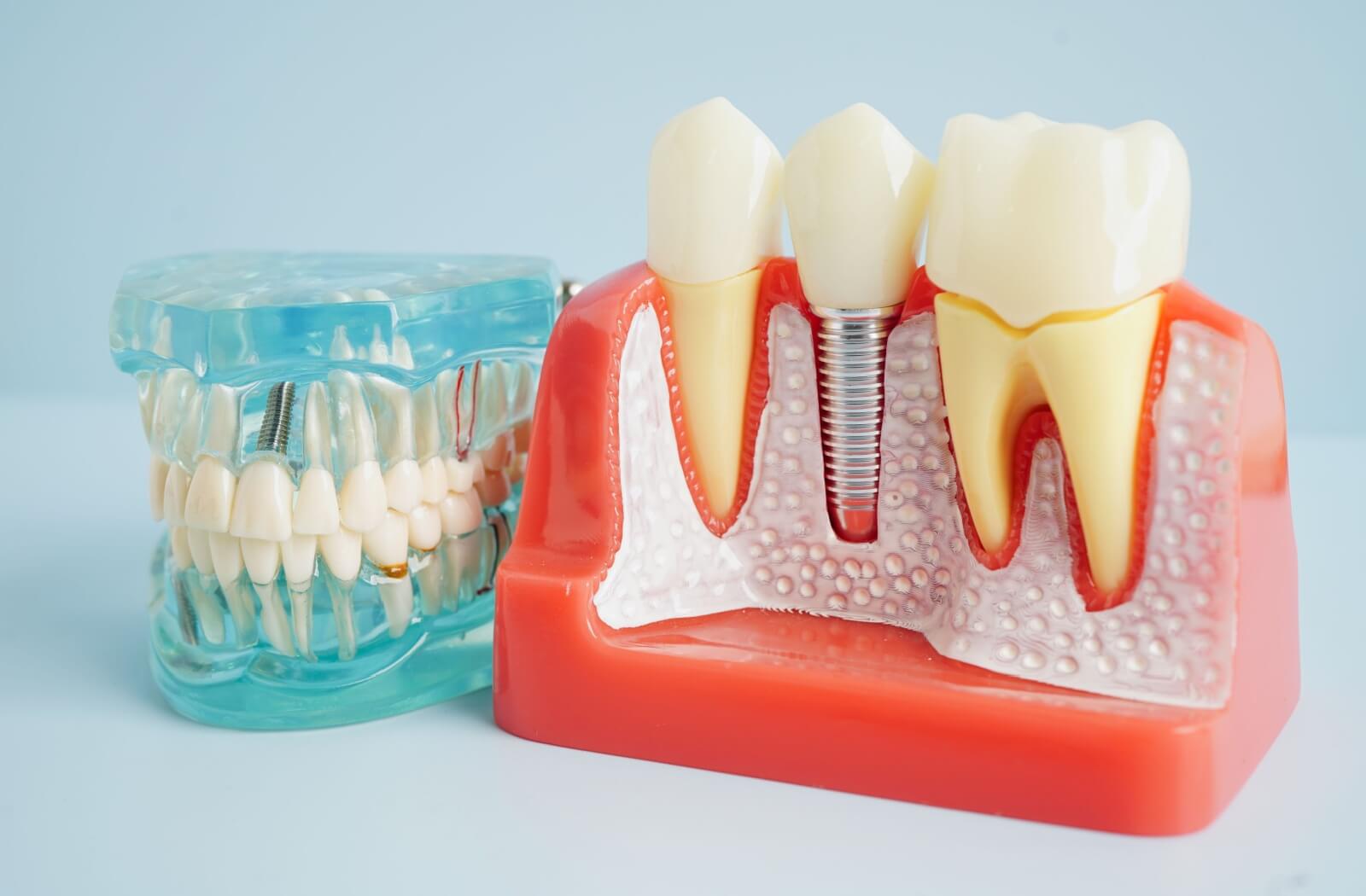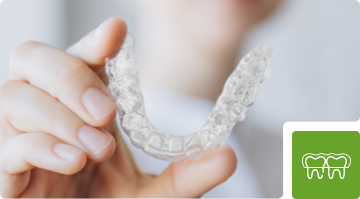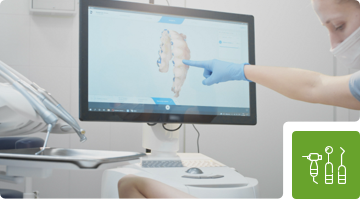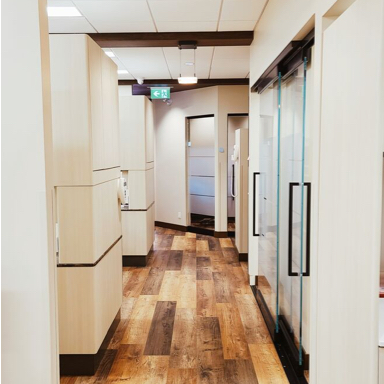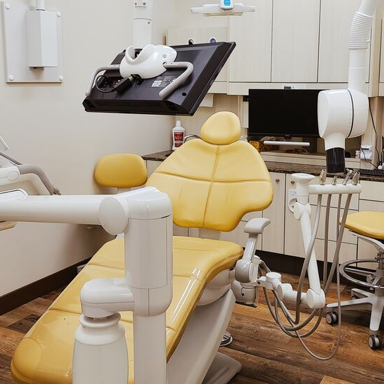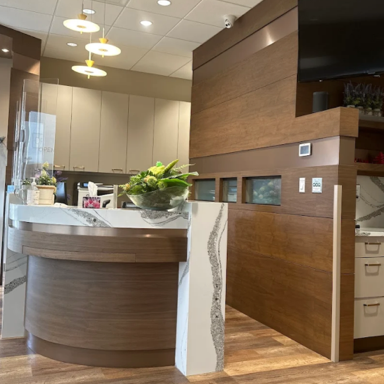Many people have some level of dental anxiety. When you add complex procedures like dental implants into this mix, even more patients are likely to have concerns.
Fortunately,modern tools and precision mean you might feel some discomfort during your dental implant procedure, but you shouldn’t feel pain.
Our goal at Chinook Village Dental is to make you feel comfortable throughout this journey. The discomfort is minimal, but the rewards for your oral health are worth it!
What Are Dental Implants?
A dental implant is an artificial tooth root. It’s a small titanium post or screw that’s surgically placed into your jawbone beneath the gum line. This post acts as a sturdy foundation for a replacement tooth, bridge, or even dentures, helping to restore the natural look and function of missing teeth.
Titanium is the material of choice because it’s biocompatible, which means it easily integrates with your natural bone in a process called osseointegration. Over the course of a few months, the implant becomes securely anchored to your jaw, offering a stable and long-lasting solution for tooth replacement.
If you’ve lost teeth because of injury, decay, or gum disease, or if you’re dealing with poorly fitted dentures, implants could be the solution you’ve been searching for!
How Dental Implants Support Oral Health
Rebuilding your smile with dental implants is about more than a cosmetic fix and confidence boost. Dental implants support your oral health in several ways, such as:
- Preventing Bone Loss: When a tooth is lost, the surrounding bone can begin to deteriorate. Dental implants help stimulate and preserve the bone.
- Improving Chewing and Speech: Implants provide a stable, natural feel, making it easier to speak clearly and enjoy your favourite foods.
- Protecting Your Smile: Dental implants don’t rely on neighbouring teeth for support, whereas dental bridges do, which means your other teeth remain unaltered.
When teeth go missing, it’s time to take action. Fortunately, a missing tooth (or several) is just a temporary setback. Dental implants offer a permanent and reliable solution for supporting your oral health.
Your Guide to Dental Implants: What to Expect
A surgical procedure at the dentist might sound overwhelming, but restoring your smile is an investment worth making.
Knowing what to expect during this process can help you feel more at ease and make the entire journey feel more comfortable.
Step 1: The Consultation
Every dental treatment starts with a consultation. This involves discussing your goals and having a thorough exam and scans to evaluate your jawbone and overall oral health.
This helps us determine if you’re a good candidate for dental implants.

Step 2: Implant Placement Surgery
The placement surgery is the next step. Here’s what happens:
- Preparation: We thoroughly numb the area with local anesthesia, so you won’t feel pain during the procedure. You might feel some discomfort from the pressure, but nothing more. If needed, sedation options are also available for extra comfort.
- Placement: We make a small incision in the gum to expose the bone. Then, we carefully insert the titanium implant into the jawbone.
- Healing Begins: At this point, you may feel mild discomfort. Over-the-counter pain relievers like ibuprofen are usually enough to manage any soreness.
Step 3: Healing & Osseointegration
The healing phase is crucial. Over the next 3 to 6 months, the implant integrates with your jawbone. During this time:
- Stick to a soft food diet to protect the implant.
- You might notice minimal swelling or sensitivity, but this typically subsides within a few days.
Good oral hygiene is vital at this stage, so gentle brushing, rinsing with a saltwater solution, and regular check-ups with your dentist are a must.
Step 4: Attaching the Abutment & Crown
Once healing is complete, we attach an abutment (a small connector piece) to the implant. This abutment holds the new crown (the visible part of your new tooth) securely in place.
You might experience some sensitivity, but this is generally a straightforward and comfortable process.
Caring for Your Dental Implants
Dental implants are a significant investment in your smile and oral health, so taking care of them is key for long-term success. Here’s how to keep your implants (and gums) healthy:
- Brush and floss daily: Treat your implants like your natural teeth. Use a soft-bristled toothbrush and non-abrasive toothpaste to clean around the implant gently. Floss daily to remove leftover debris, plaque, and bacteria that can accumulate in tight spaces between your teeth and gums.
- Rinse regularly: On top of routine brushing and flossing, an antimicrobial mouthwash can help prevent plaque and bacteria buildup.
- Avoid hard foods: Especially in the first few months, avoid biting down on hard items like ice or hard candy. The surgical area might still feel tender, so be mindful and allow a full recovery.
- Quit smoking: Smoking can increase the risk of implant failure. If you’re a smoker, consider this the perfect time to quit!
- Visit your dentist regularly: Follow-up appointments are crucial for monitoring the health of your implant. We will also professionally clean the area to avoid any potential problems.
With proper care, dental implants can last you a lifetime!
Rebuild Your Beautiful Smile with Dental Implants
It’s natural to have some discomfort as part of any healing process. However, most people are pleasantly surprised at how manageable dental implant surgery is.
Thanks to modern dental technology and careful planning, the entire experience is far easier than many expect. And the long-term benefits? A confident smile, better oral health, and the joy and comfort of not worrying about missing teeth.
If you’re looking to restore your smile and support your oral health, dental implants might be right for you. The only way to know for sure is through a consultation with our expert team. Connect with Chinook Village Dental to book an appointment! We’re here to guide you every step of the way!

